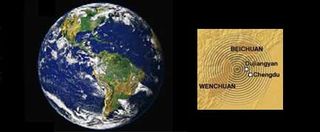Earthquakes

Earthquakes are the result of plate tectonics, or shifting plates in the crust of Earth, and quakes occur when the frictional stress of gliding plate boundaries builds and causes failure at a fault line. In an earthquake, elastic strain energy is released and waves radiate, shaking the ground. Scientists can predict where major temblors might occur in a general sense, but research does not yet allow forecasts for specific locations or accurate predictions of timing. Major earthquakes, some generating tsunamis, have leveled entire cities and affected whole countries. Relatively minor earthquakes can also be induced, or caused by human activity, including extraction of minerals from Earth and the collapse of large buildings.
Latest about Earthquakes
Stay up to date on the latest science news by signing up for our Essentials newsletter.
Thank you for signing up to Live Science. You will receive a verification email shortly.
There was a problem. Please refresh the page and try again.

